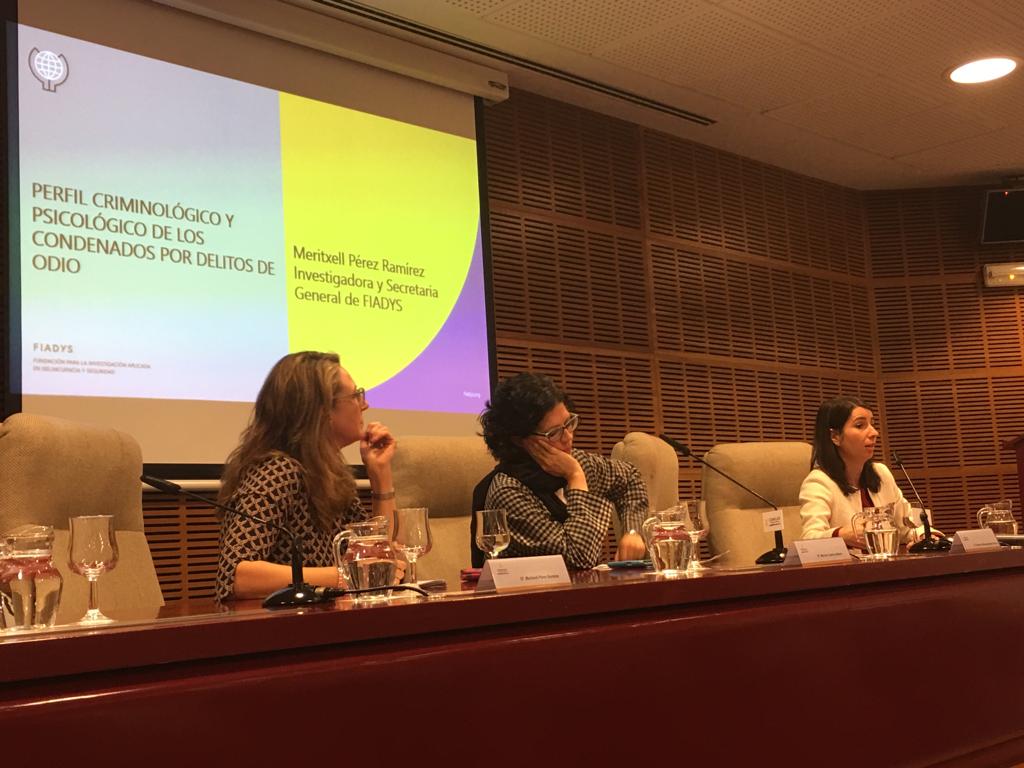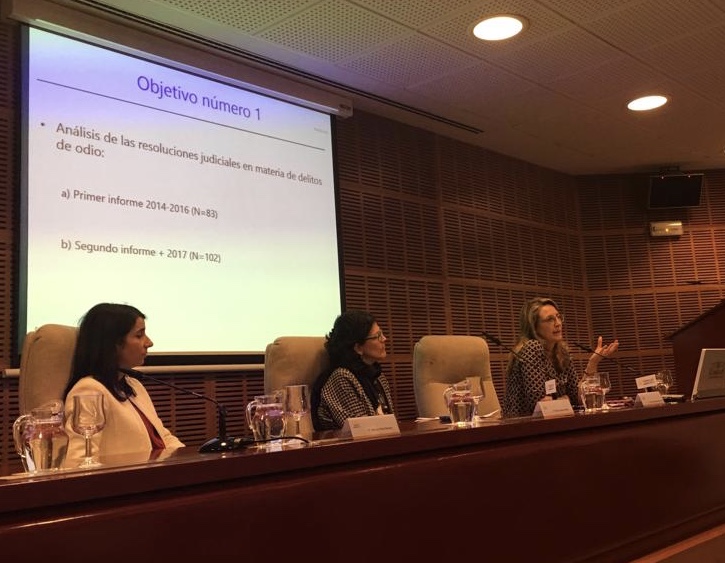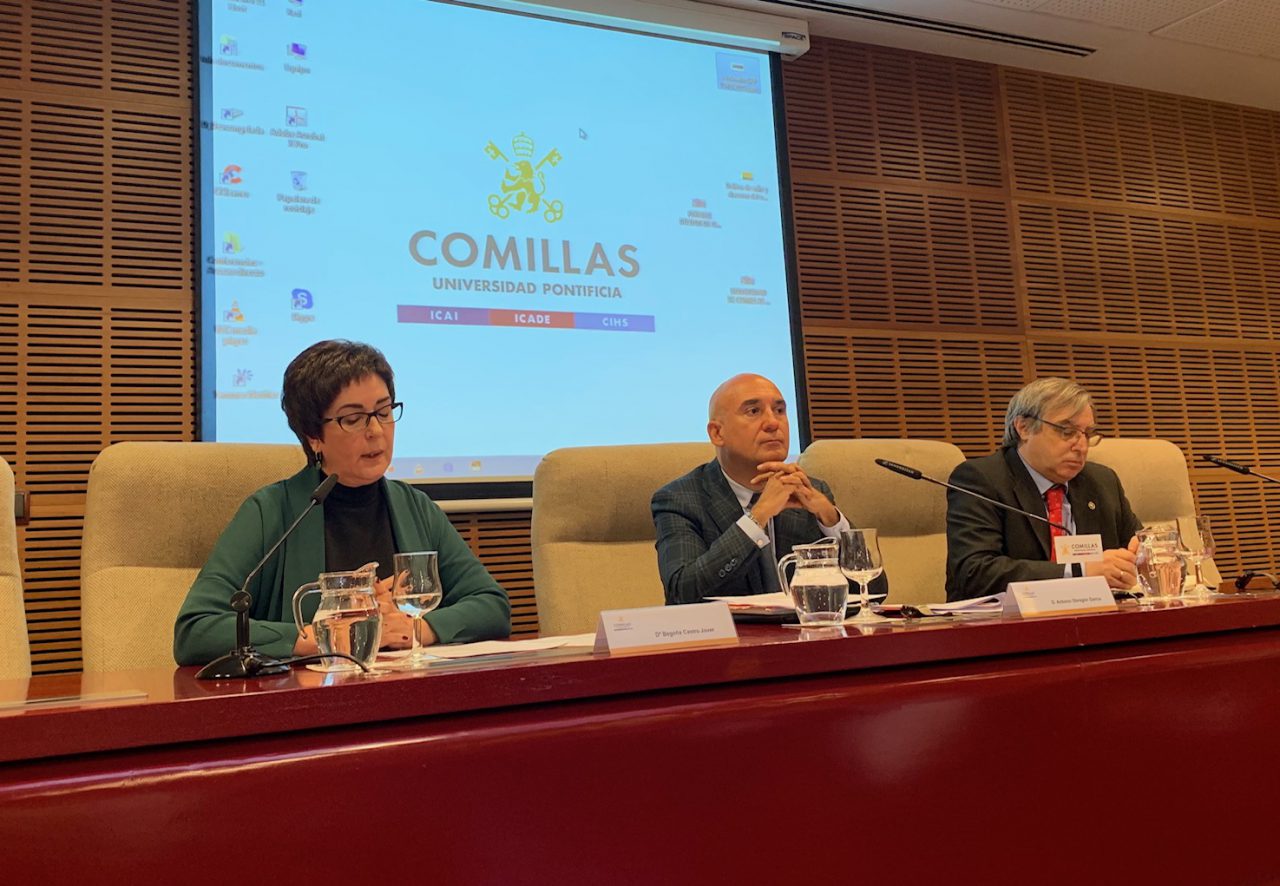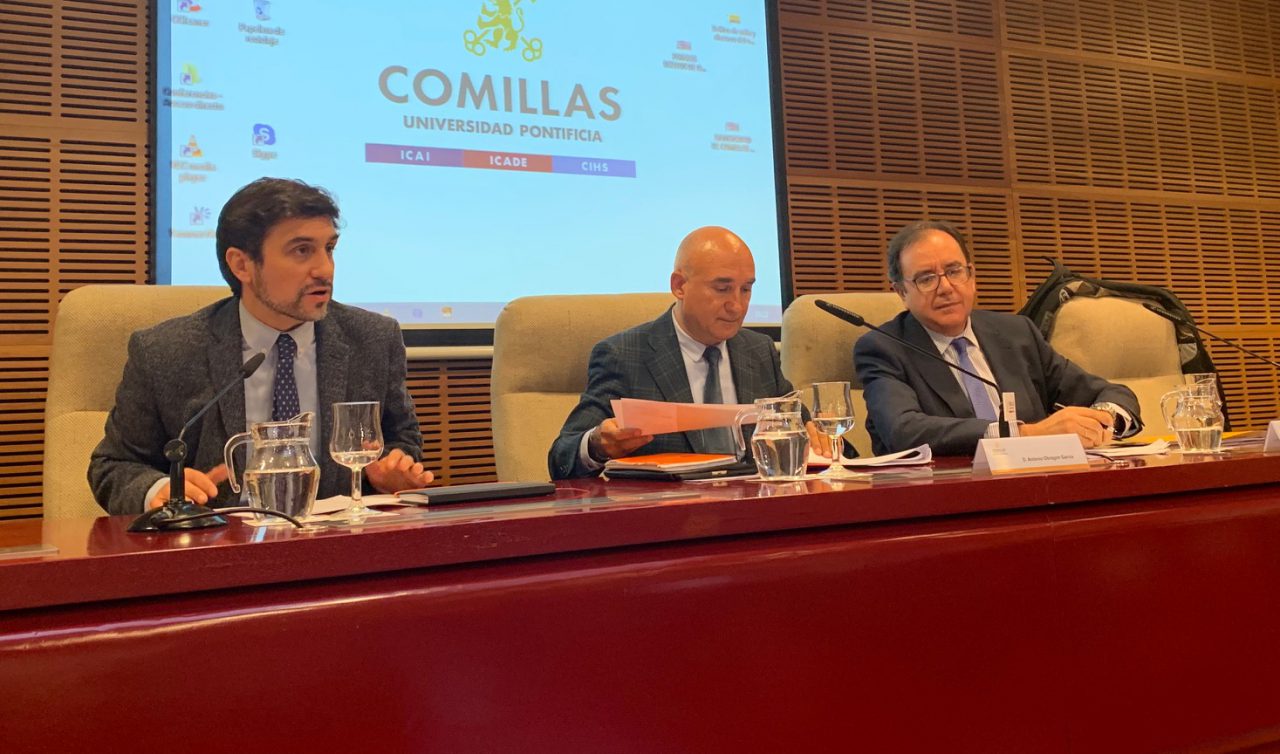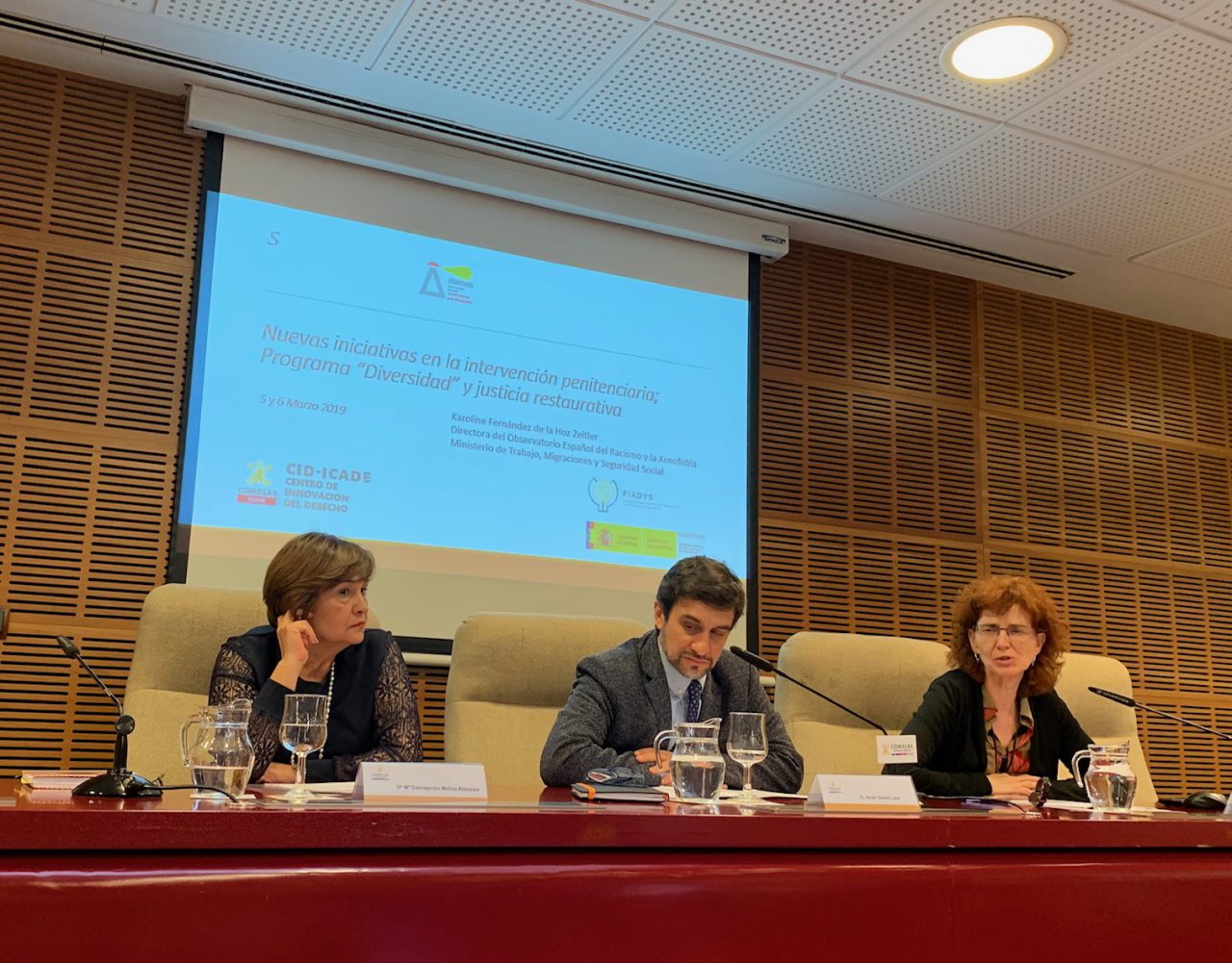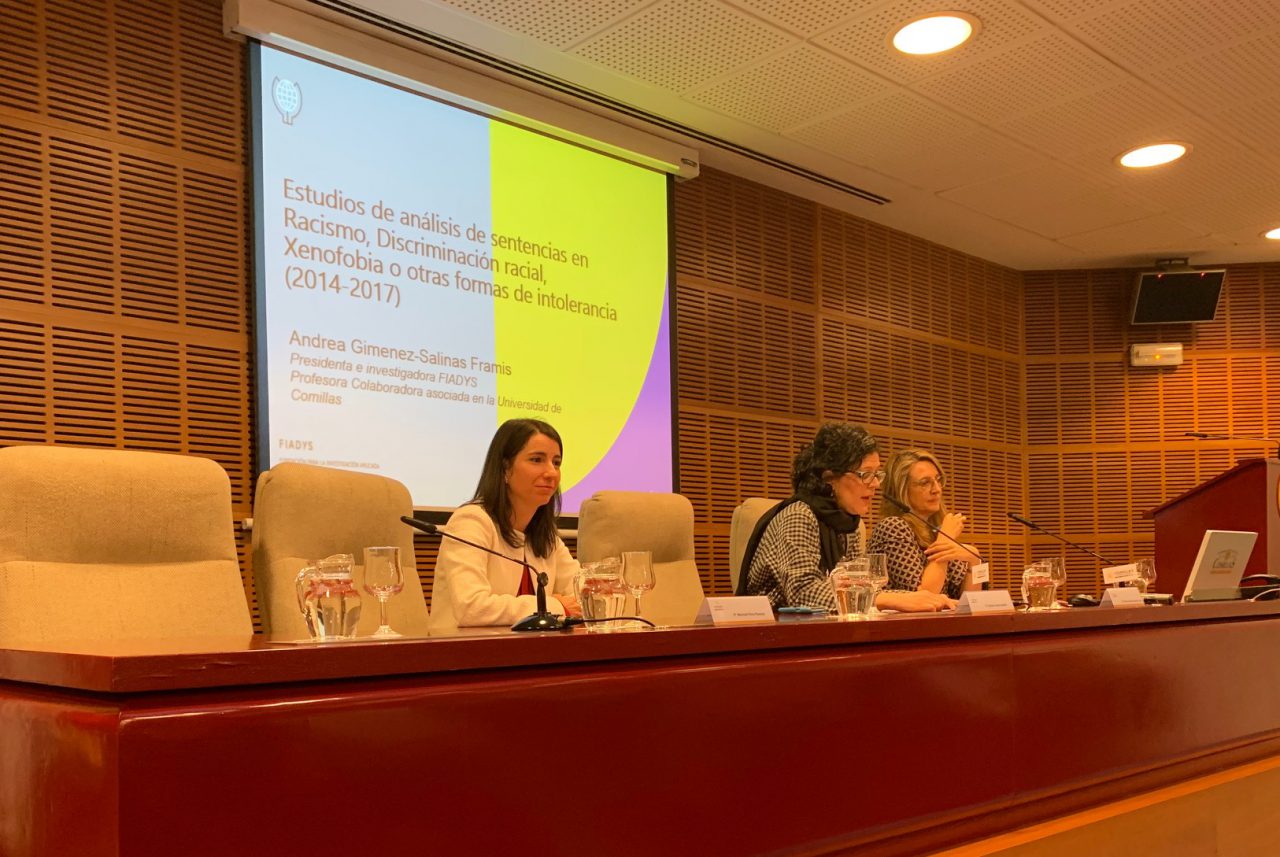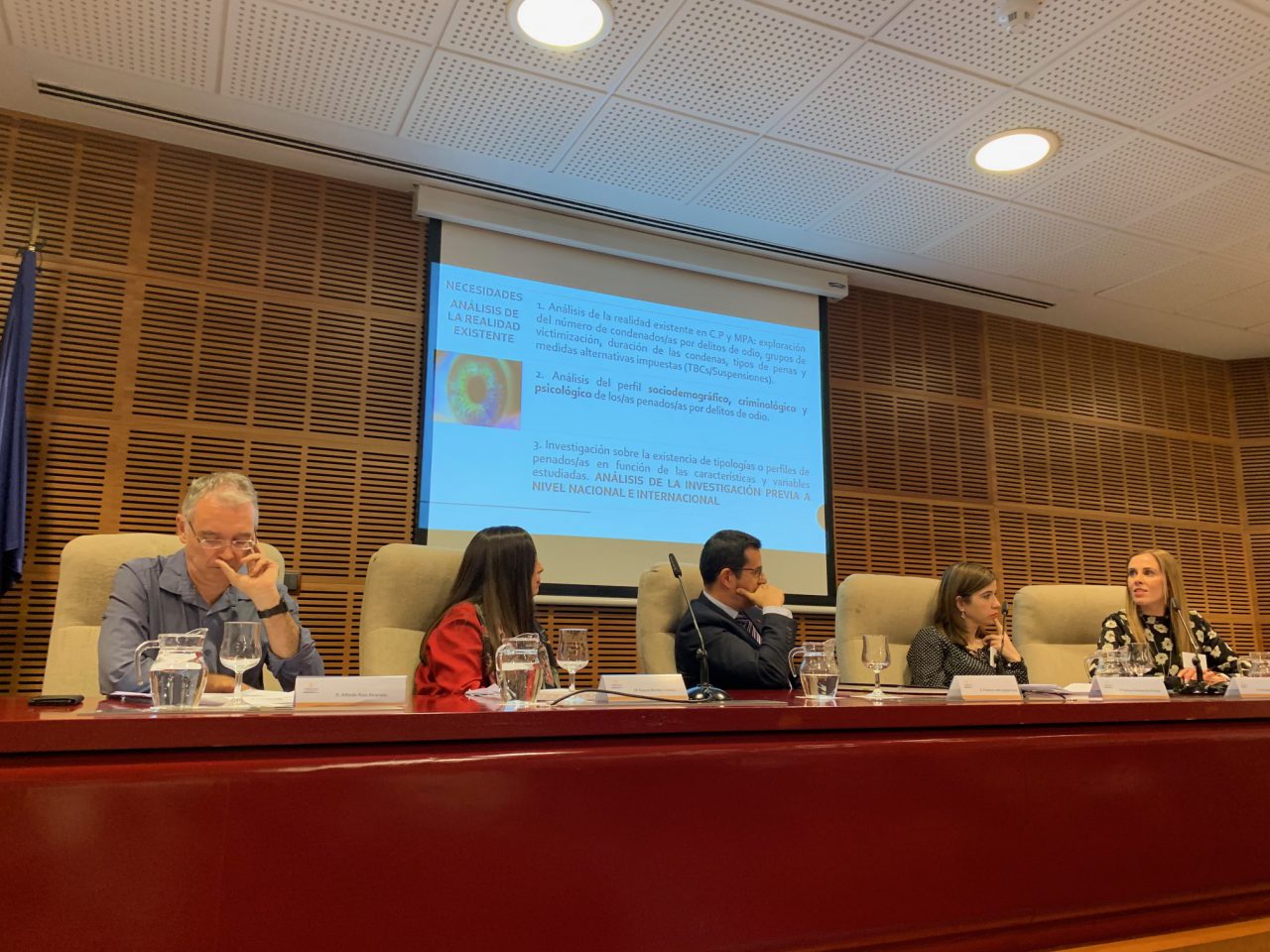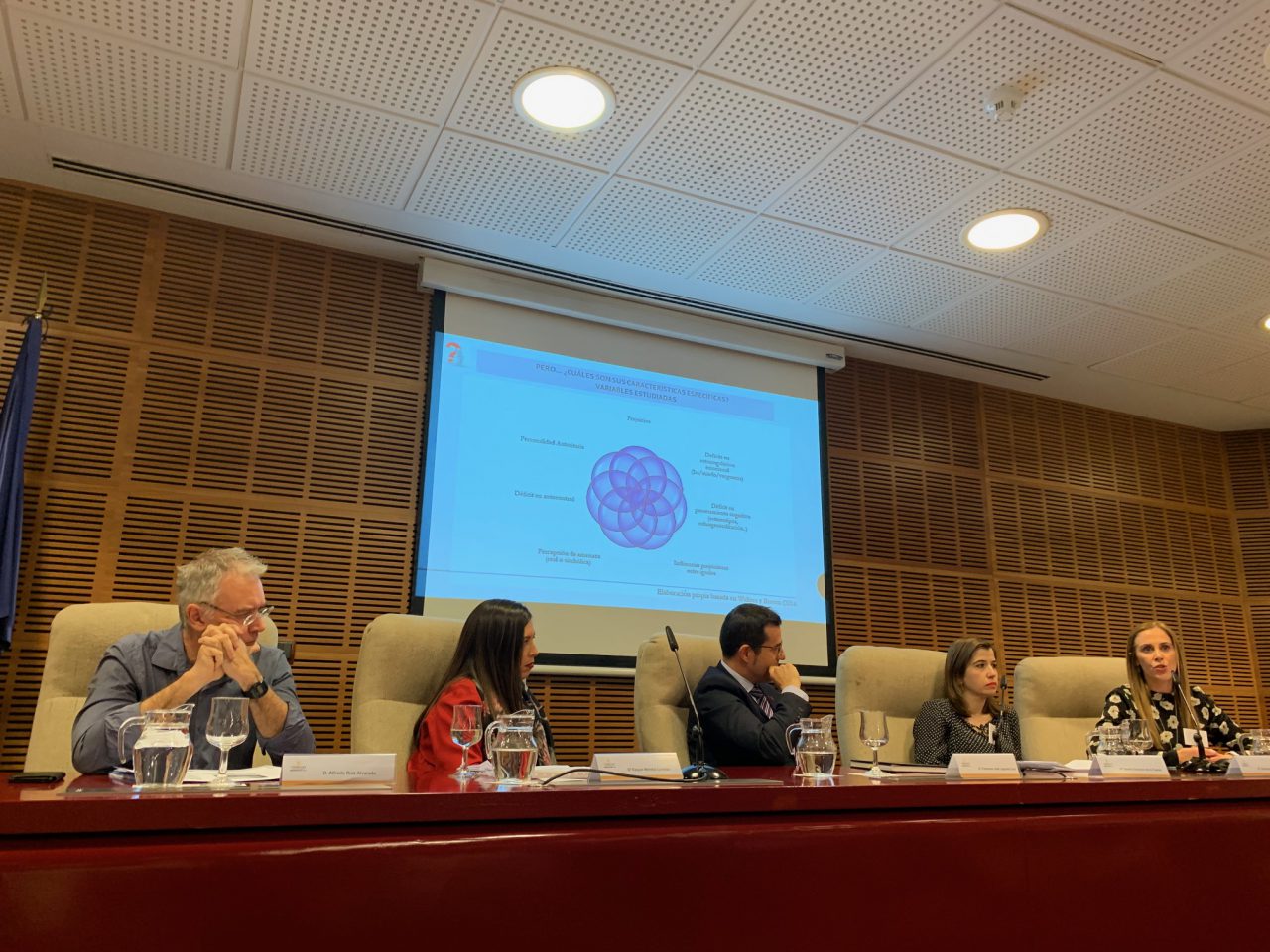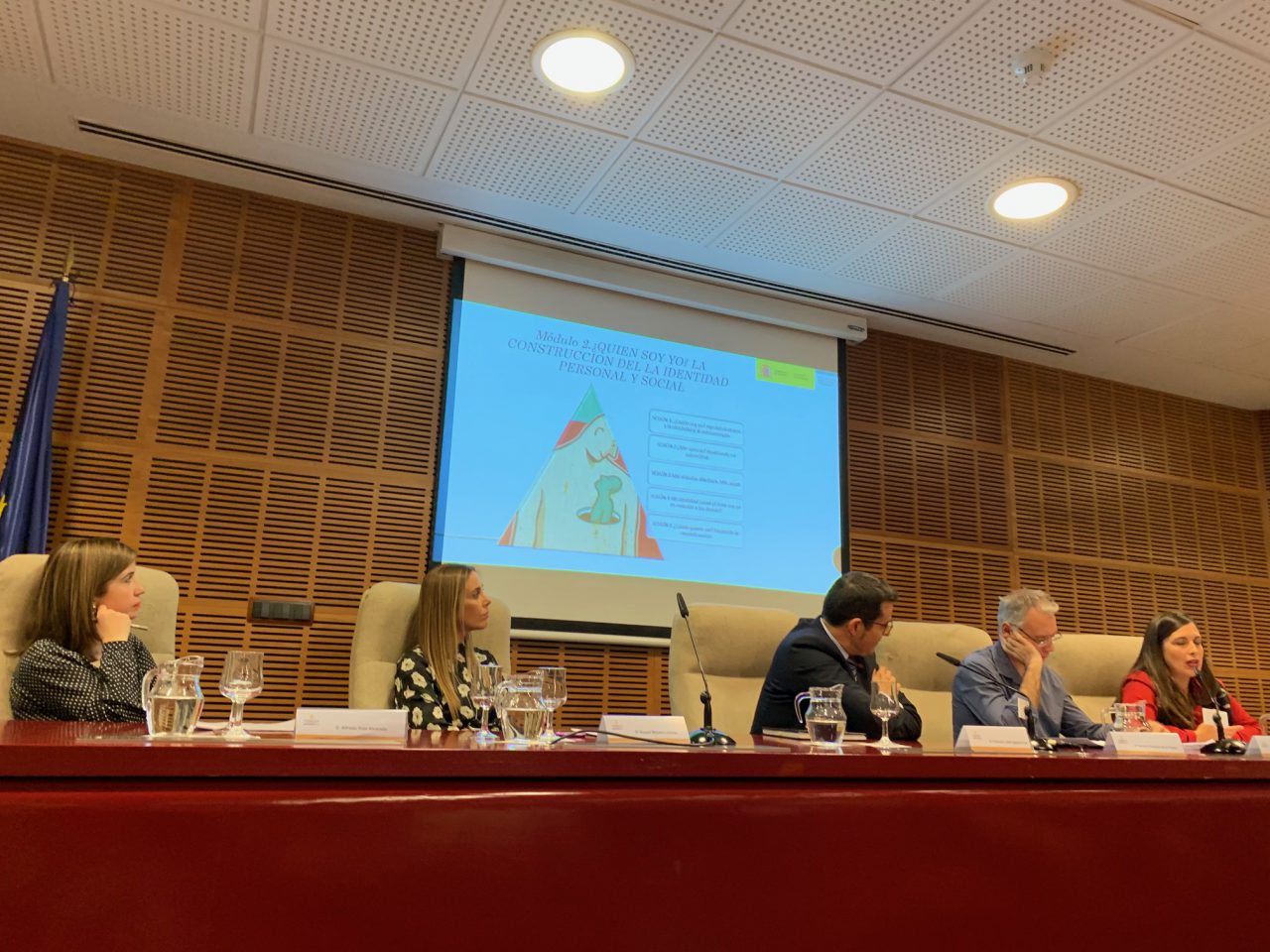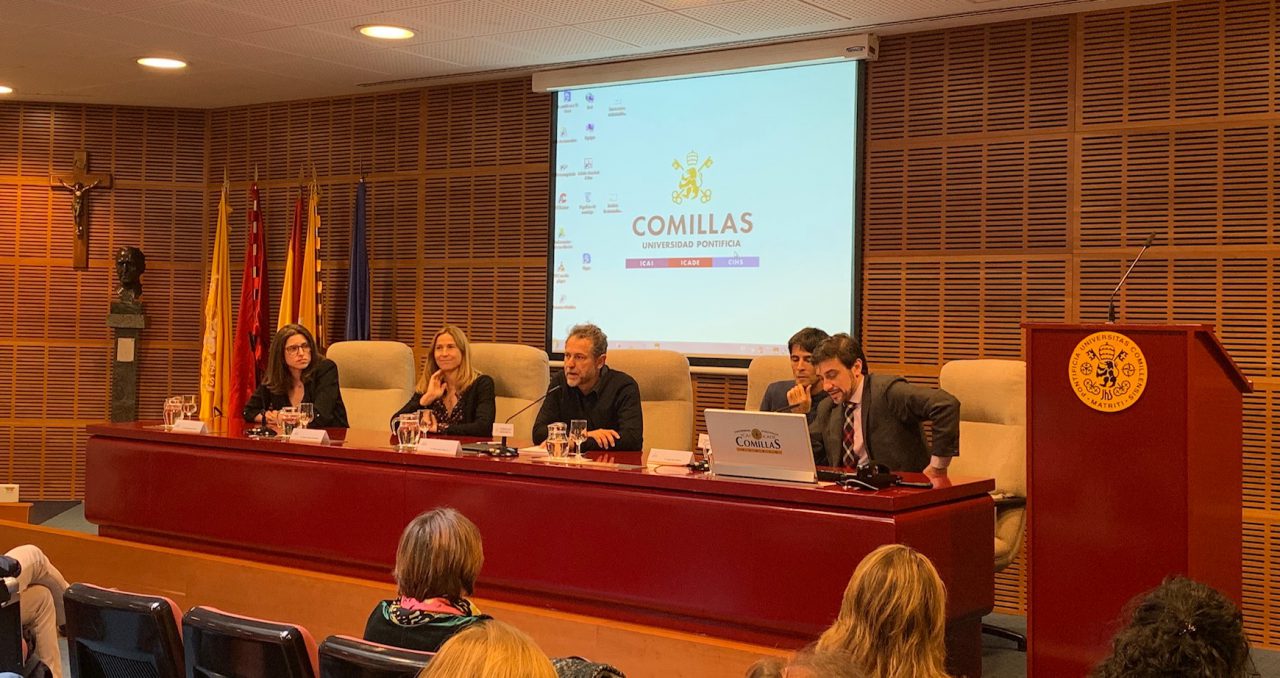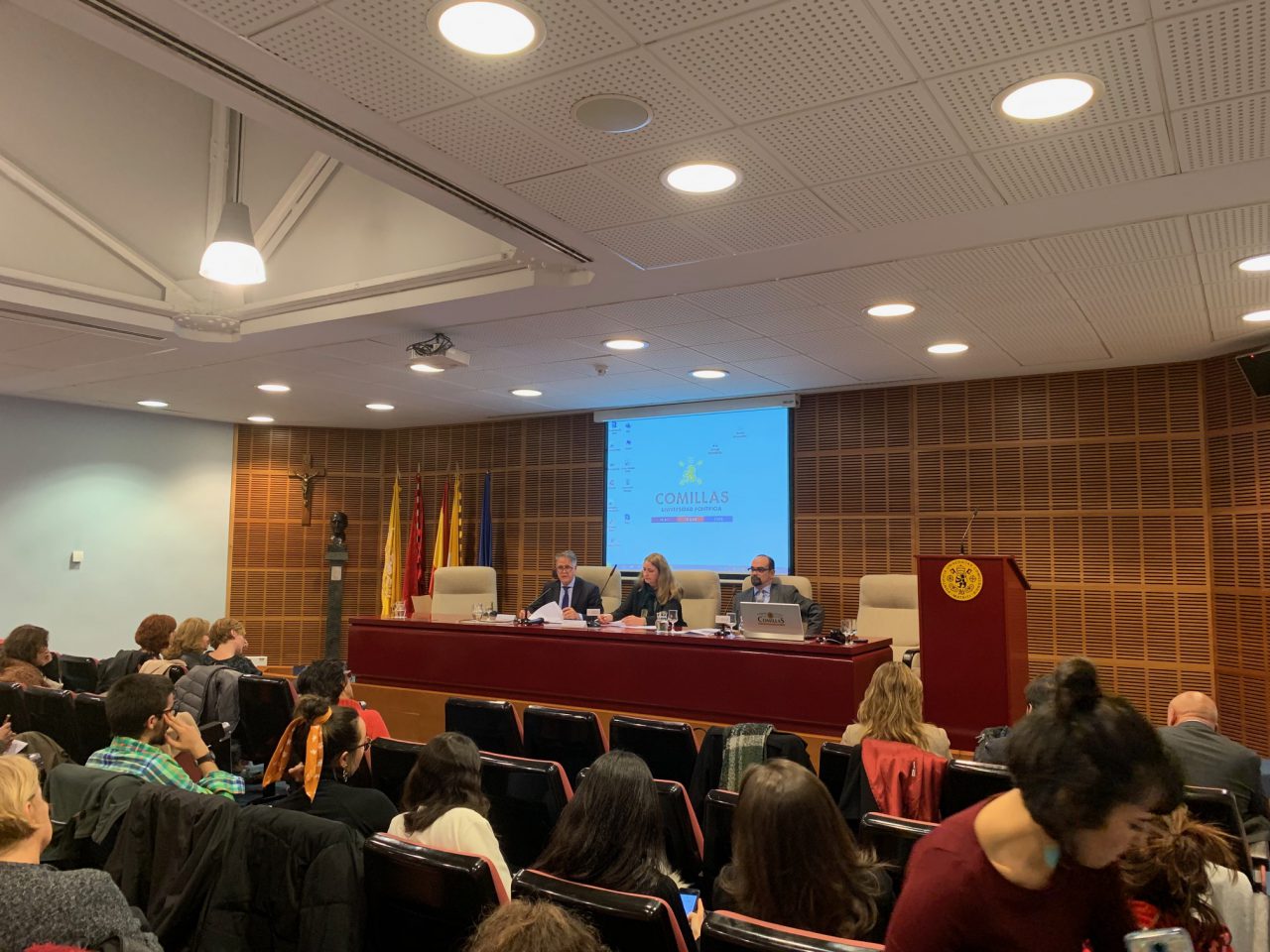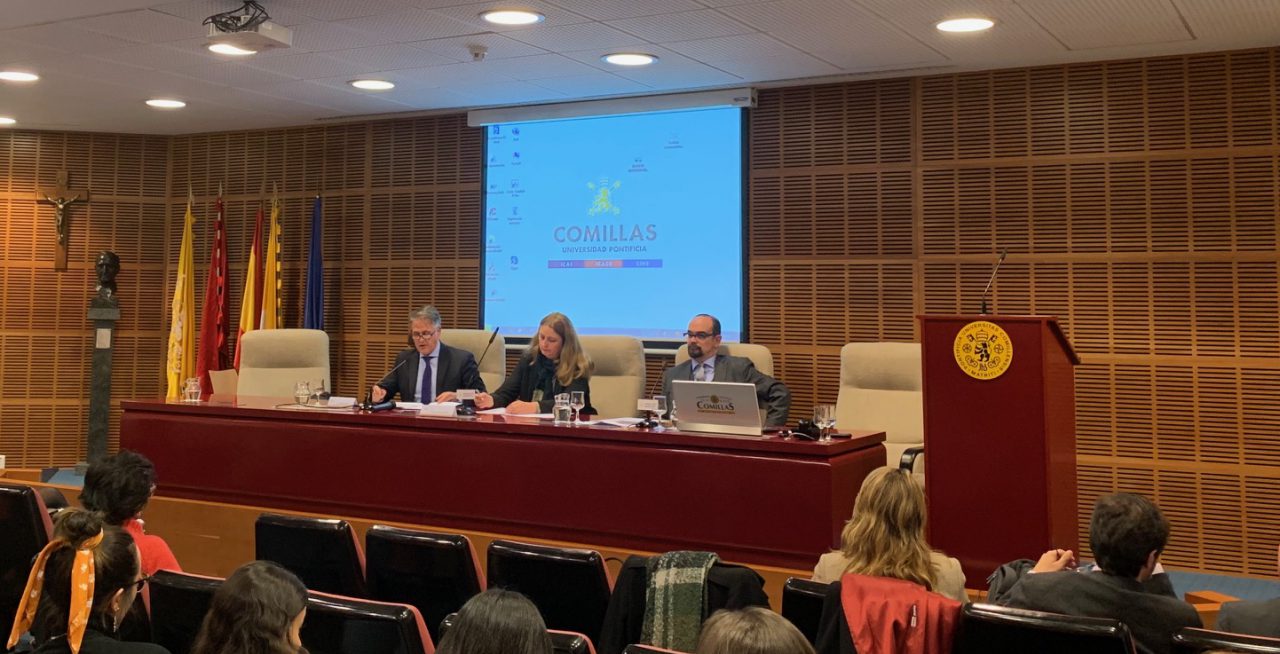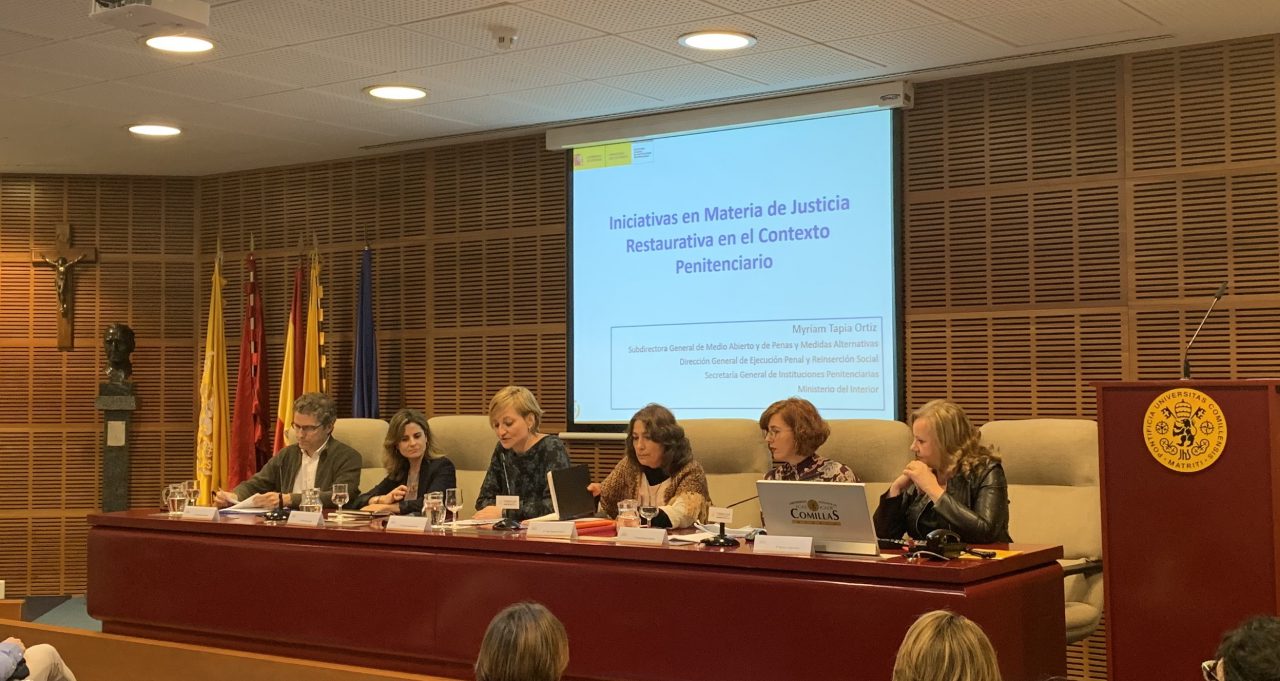Great attendance at the Seminar “New approaches in prison intervention”
The Seminar “New approaches in prison intervention” has been a success in terms of participation, with more than 130 people registered, and in scientific dissemination of the current programs in prison and community intervention.
The seminar was opened by Mr. Antonio Obregrón, Vice -Rector of Universidad Pontificia Comillas, Ms. Begoña Castro, Vice-Dean of Madrid Bar Association, and Mr. Fernando Chacón, Dean of Madrid College of Psychologists. The opening speech was given by Mr. Ángel Luis Ortiz, General Secretary of the Prison System, who supported introducing restorative justice in prison and community intervention with offenders.
Next there was a debate about hate crimes in which Professor Mª Concepción Molina Blázquez explained the legal context of these types of offences. The seminar addressed the recent social problems generated by xenophobia and discrimination in Spanish society. Ms. Karoline Fernández de la Hoz, Chair of OBERAXE, brought up the new challenges our society faces in order to build tolerance and embrace multiculturalism.
The following panel presented two empirical hate crimes studies carried out by FIADYS. In the first, Ms. Andrea Giménez-Salinas talked about sentence analyses of hate crime cases, which occurred between 2014 and 2017 (results available on FIADYS website). In the second, Ms. Meritxell Pérez presented, for the first time in Spain, the sociodemographic, psychological and criminological profile of those convicted of hate crimes serving time in prison or doing community service.
The final panel of the day was the main topic of the seminar: the presentation of Program Diversity. This psychological intervention has recently been designed by a team of experts including professionals from the prison system and from the third sector. The aim of the program is to promote tolerance and prevent violence caused by prejudice and hate towards women and minorities. The following professionals from the prison system, Ms. Ana Suarez, Ms. Raquel Méndez, Ms. Sandra Chiclana de la Fuente and Mr. Alfredo Ruiz, presented on the theoretical model, the structure and the overall content of the program that is currently delivered in prison and community service.
The second day was about restorative justice and the initiative developed in prison to put victims (secondary or indirect) in contact with aggressors in order to provide opportunities for reparation and healing. The first panel analyzed the advantages of restorative justice for the victim and the aggressor, and the opportunity to solve the conflict and repair the harm inflicted. Ms Esther Pascual and Mr. Julián Ríos gave an example of restorative justice describing the first reparation meetings in Nanclares prison.
In the second panel, coordinated by Ms. Laura Negredo, from Probation and Community Service, Ms. Myriam Tapia, Vice Director of Probation and Community Service, talked about the importance of the alternatives to serving time in prison and the role restorative justice plays in them. Different NGOs collaborating with the prison system took part in this panel to explain the initiatives regarding restorative justice that they are developing in prison and community service.
Mr. Javier Nistal, General Director of Penal Execution and Social reintegration, closed the seminar with Ms. Susanne Margret, Dean of Humanities and Social Sciences Faculty, and Mr. Francisco J. Alonso, Dean of Law Faculty.
Keywords:
community service, hate crimes, prison, restorative justice
